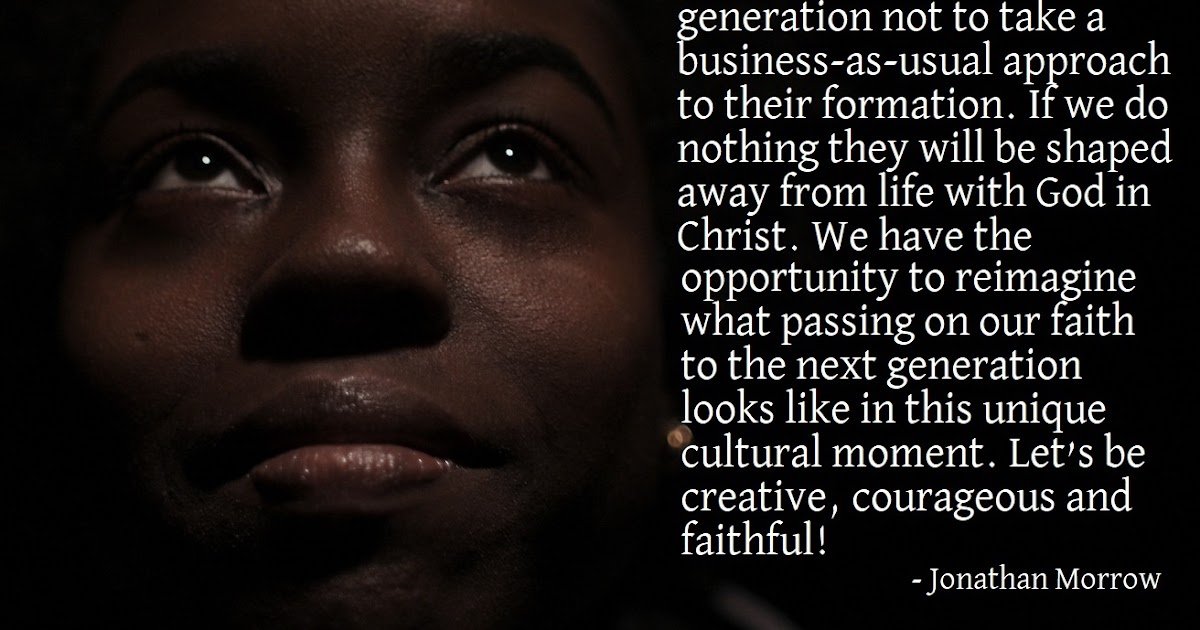[ad_1]
 Certainly the grandparents and parents of the children in your ministry want them to make the choice to believe in God, trust His Word and follow Jesus. This is why they hand down confident faith – or why we need to equip them to learn how to hand down confident faith. We know as they look at their lives and the scope of things where they are able to spend their time, handing down confident faith is what truly matters – and equipping the parents and grandparents to hand down confident faith is absolutely one of the best uses of our time as people who serve in Children’s Ministries.
Certainly the grandparents and parents of the children in your ministry want them to make the choice to believe in God, trust His Word and follow Jesus. This is why they hand down confident faith – or why we need to equip them to learn how to hand down confident faith. We know as they look at their lives and the scope of things where they are able to spend their time, handing down confident faith is what truly matters – and equipping the parents and grandparents to hand down confident faith is absolutely one of the best uses of our time as people who serve in Children’s Ministries.
Today I am sharing an article with research by Barna on building lasting faith in Gen Z (you will find the full post at this link.) Look at some of what Jonathan Morrow has to say . . .
“Another reason students are hesitant to hold firm on moral or spiritual truth is what I will call the crisis of knowledge. Knowledge is what authorizes and enables us to navigate reality. Knowledge is what I want my mechanic and dentist to have before I let them do anything to my car or to me. But our culture no longer assumes spiritual and moral knowledge are a possibility—there is only opinion, personal preference, and blind faith. Why is this? Because we have inherited a way of viewing the world which believes only the hard sciences give us knowledge. In other words: You can’t know something unless you prove it scientifically. This view is called scientism. In Gen Z, scientism is not even argued for; it is assumed. Yet it’s obvious we may know things outside of the hard sciences, like truths about the past (history) or human trafficking is objectively evil (morality).
The bottom line is the Bible assumes moral and spiritual knowledge exist (see Hos. 4:1–6; Luke 1:1–4; Romans 1:19; 2:15; 1 John 5:13). But when Christians talk about this knowledge with our culture, our culture hears it as an individual taste, not as reality.“
He goes on to say; “In order to build a strong and lasting faith, students need reasons, relationships, and rhythms. These are the things we are able to directly influence. First, Gen Z needs reasons for faith: to know why they believe what they believe (see 1 Pet. 3:15). Apologetics is not optional. They also need to be inoculated against false ideas while they are younger (emphasis mine) and in an environment where we will help them discover reasonable responses to objections to their faith. This requires safe space for them to ask questions and explore doubts. In short, teenagers need a grown-up worldview, not coloring-book Jesus. It’s so fun to see teenagers’ confidence grow and their faith come alive when they discover Christianity is actually true!
Next, teenagers need wise relationships. Gen Z increasingly feels isolated and alone, but they hunger for real relationships. There are four strategic relationships we may help them cultivate: God, parents/(grandparents), mentors, and friends (see Prov. 13:20). I am convinced relationships are the most powerful shaping influence during the teenage years.
Last, students need rhythms to help them practice their faith. We become what we repeatedly do. Gen Z will not build a strong worldview if they never practice it.“
Take a minute or two and read the full post, then pray about what you are able to do to help the teens (and children) learn the reasons for their faith (get Anchored curriculum supplement to use in your Children’s Ministry – you will find it at this link and/or Deeper In Curriculum at this link.) Help parents and grandparents, so they are not intimidated by the word “apologetics” – it is just about knowing why they are able to believe what they believe. There are some wonderful sites with free information for them on apologetics check out . . . Josh McDowell’s site, CARM (Christian Apologetics & Research Ministry, there’s a wonderful article by Jerry Root on Christianity Today and check out bethinking – especially at this link and this link.
We do not have to have a degree in apologetics to hand down confident faith or to equip the parents and grandparents in our ministries to do the same; but we must equip them to teach the ones they love about why they are able to believe in God and trust His Word with confidence. If we do not, it is entirely possible they will stumble and fall away from the truth as they grow older. Help parents and grandparents prepare the children they love while they are young. Give them a strong foundation and confidence – it is part of handing down confident faith and it absolutely matters.
[ad_2]
Source link







You must be logged in to post a comment.